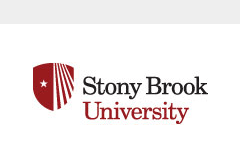Document Type
Full Paper
Location
Charles B. Wang Center
Event Website
http://www.centerfornewsliteracy.org/globalconference2017/
Keywords
news literacy, media literacy, information literacy, journalism, media, news, fake news, ethics, critical thinking
Start Date
8-15-2017 11:00 AM
End Date
8-15-2017 12:30 PM
Description
This paper provides a short comparative analysis of known News Literacy teaching programs and methods in the structure of universities in various countries. It will focus on topics that are specific to Russian higher education and which are especially significant to the study of news literacy deficits in Russia. Thus, in the course of News Literacy teaching the National Research University Higher School of Economics puts a special emphasis on the consideration of news in historical retrospective and the role of news content in media spaces; the risks and challenges of “news” as a type of text message; discussions about whether news can be considered a “debauched value”; and methods of spotting fakes in verbal and visual communication. In addition, the interrelation and mutual influence of the News Literacy course with other educational subjects, particularly the journalistic deontological ethics course, is discerned. Teachers also compare the students’ media literacy level before and after studying of News Literacy. This report addresses whether it is possible to identify significant factors which influence informational and media literacy in general. This report is based on integrated data of the four-year (continuing) complex study of the media literacy level of students at the National Research University Higher School of Economics, conducted with Anna Kachkaeva and Anna Kolchina.
Included in
The Specific Character of News Literacy Teaching in Russia and the Dynamics of the Media Literacy Level of Russian Students
Charles B. Wang Center
This paper provides a short comparative analysis of known News Literacy teaching programs and methods in the structure of universities in various countries. It will focus on topics that are specific to Russian higher education and which are especially significant to the study of news literacy deficits in Russia. Thus, in the course of News Literacy teaching the National Research University Higher School of Economics puts a special emphasis on the consideration of news in historical retrospective and the role of news content in media spaces; the risks and challenges of “news” as a type of text message; discussions about whether news can be considered a “debauched value”; and methods of spotting fakes in verbal and visual communication. In addition, the interrelation and mutual influence of the News Literacy course with other educational subjects, particularly the journalistic deontological ethics course, is discerned. Teachers also compare the students’ media literacy level before and after studying of News Literacy. This report addresses whether it is possible to identify significant factors which influence informational and media literacy in general. This report is based on integrated data of the four-year (continuing) complex study of the media literacy level of students at the National Research University Higher School of Economics, conducted with Anna Kachkaeva and Anna Kolchina.
https://commons.library.stonybrook.edu/cnlglobalconference/cnl2017/one/10

